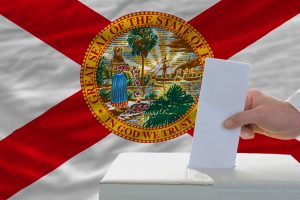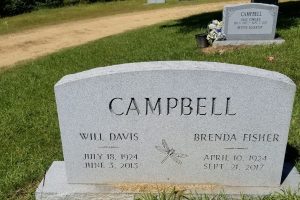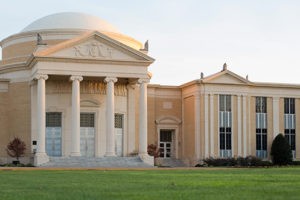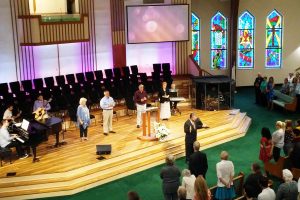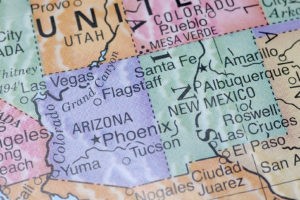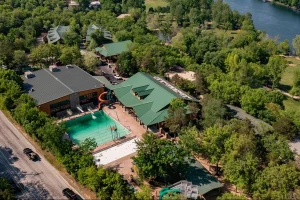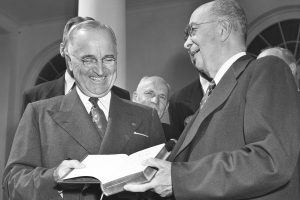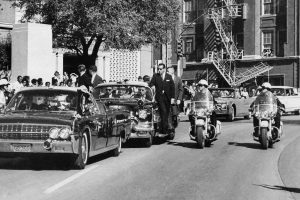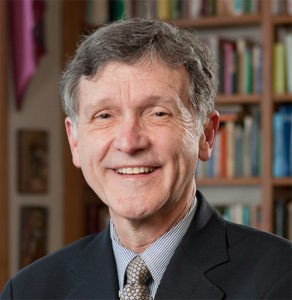 “Daddy am I handicapped?” our preschool-aged daughter Stephanie inquired almost four decades ago. “Who told you that?” I replied, defenses rising. “The kids,” she answered, “at church.” Stephanie is now a middle-aged person with special needs. Church was the first place she learned the label “handicapped.”
“Daddy am I handicapped?” our preschool-aged daughter Stephanie inquired almost four decades ago. “Who told you that?” I replied, defenses rising. “The kids,” she answered, “at church.” Stephanie is now a middle-aged person with special needs. Church was the first place she learned the label “handicapped.”
Those memories overtook me recently while attending an event in my community of Winston-Salem, North Carolina. “A Wider Welcome: Faith Communities & Disability” was sponsored by Interfaith Winston-Salem and hosted by Knollwood Baptist Church. Lecturers Bill Gaventa and LaTonya McIver Penny laid out strategies theological and pragmatic by which congregations across denominational and interfaith traditions might engage individuals and families with special needs in more direct, caring and intentional ways. Participants articulated the pain they experienced in congregations that meant well but often seemed unable to respond effectively to the complex and chronic nature of the special needs of persons in their midst.
Gaventa, a nationally known advocate of, for and with persons with special needs told us: “‘Everybody is Welcome’ is one of the most familiar lines on congregational street signs around the country. What happens when everyone shows up? Genuine hospitality, as practiced in faith communities in response to the calls of scripture, means first of all that our definition of ‘all God’s people’ widens and deepens. Second, it means that moving from welcome and inclusion to belonging is as much a gift to the community as to people being welcomed.”
“I hesitate to engage in prescriptions for the Methodists, particularly since Baptists who live in glass meetinghouses shouldn’t throw stones.”
Penny, pastor of New Mount Zion Missionary Baptist Church in Roxboro, North Carolina, and director of Family Abuse Services of Alamance County, asked: “Inclusion is the buzz word for today, but what does it really mean? How do you prepare for everyone who walks through the [church] doors?”
“Preparation and education are key for radical hospitality and radical inclusion,” Penny said. She referenced the Luke 5 story in which unnamed individuals carry “a paralyzed man” to Jesus, even tearing up somebody’s roof, lowering him “bed and all . . . in front of Jesus.” Inclusion can get messy.
Offering radical hospitality was a challenge for the church from the beginning. Even Jesus had to learn a thing or two. In Mark 7 when the “Syrophoenician” woman begged him to heal her daughter, his first response to that outsider (Gentile) woman was: “Let the children be satisfied first; it is not fair to take the children’s bread and throw it to the dogs.” But the woman refused to be dismissed from the trauma center of Jesus’ presence: “Sir, even the dogs under the table eat the children’s scraps.” That day, radical inclusion caught up with the “Word made flesh,” perhaps beginning the process by which we Gentiles were “grafted into” Christ’s body.
In John 9 the disciples turned inclusion into dogma regarding “a man born blind,” asking: “Rabbi, who sinned, this man or his parents?” “Neither,” Jesus replied, opening the man’s eyes in ways that some religious folk thought inappropriate. When the newly-sighted man defended Jesus’ action, they asked, “How could such signs come from a sinful man?” And, says John, “then they became abusive,” demanding: “Who are you to give us lessons, born and bred in sin as you are?” And, “Then they expelled him . . .” (John 9:34NEB)
Christian history is replete with the expulsion of persons from the church; times when sin, sex, orthodoxy and “special needs” all run together and somebody or some bodies had to go (actions for which the Church sometimes repented decades or centuries later). There are terrible illustrations, but in this instance I cite just one.
“Christian history is replete with the expulsion of persons from the church; times when sin, sex, orthodoxy and ‘special needs’ all run together and somebody or some bodies had to go.“
In 1637 Mary Dyer, a Boston Puritan, gave birth to a terribly disabled, still-born infant. Dyer was already labeled an “antinomian” for asserting the freedom to interpret scripture according to the Spirit’s guidance, a spirituality sometimes contradicting the Puritan ministerial establishment. Thus, her lifeless child was labeled “monstrous,” a sign of divine judgment on Dyer’s heretical theology. Governor John Winthrop’s 1644 treatise, A Short Story of the Rise, Reign, and Ruine of the Antinomians, provides a detailed (probably exaggerated) description of the child’s disabilities as evidence of “God’s strange and remarkable judgment from heaven against radical religious independency.”
Dyer later became a Quaker preacher, proclaiming views for which she was hanged in 1660 Boston. “Who are you to give us lessons?” has remained in the church’s vocabulary for a long, long time.
Which brings us to the United Methodist Church (UMC), yet another faith community airing controversies and doctrinal divisions in the American public square. Global delegates to the recent Special Conference voted for a “Traditional Plan” of dogma and praxis confirming earlier declarations that “homosexuality is incompatible with Christianity,” forbidding ordination of LGBTQ persons and promising punitive action leading to the expulsion of clergy performing same-sex marriages – all making church trials a distinct possibility. The Plan encourages churches and groups of churches that cannot support these regulations to withdraw from the UMC.
I hesitate to engage in prescriptions for the Methodists (let’s put the term “United” on hold), particularly since Baptists who live in glass meetinghouses shouldn’t throw stones. I owe Methodism a great deal. Two of my three higher education degrees are from Methodist-related schools – Texas Wesleyan University (B.A.) and Boston University (Ph.D.). In 1968 when the UMC was constituted, I was a senior at Texas Wesleyan, majoring in religion with Alice Wonders, teacher and mentor, an ordained Methodist deacon and, I’m told, then the country’s only female chair of a religion department.
“Perhaps the Methodists’ ‘traditional’ response to LGBTQ persons offers a case study for the rest of us in the tension between biblical boundaries and radical inclusion.”
My Texas Baptist pastors never imagined that a woman would hold such a post, so they didn’t bother to tell me, as some would do now, that I wasn’t supposed to study with an ordained woman, particularly one who taught both Testaments. From her own position on the ecclesiastical margins of Methodism, Wonders mentored my own professorial aspirations, a debt I can never fully repay.
Perhaps the Methodists’ “traditional” response to LGBTQ persons offers a case study for the rest of us in the tension between biblical boundaries and radical inclusion. The 561 delegates who approved that traditionalist mandate for themselves and their church have made their choice. Now they and all of us in similar dilemmas must wait on the Spirit and history to determine if such “traditional” actions are rightful or, as in the case of the slaves, women, “monstrous” births and persons with other “special needs,” repentance will ultimately be required.
Till then, the Methodists and the rest of us might want to pay attention to the people who continue to tear up our gospel roofs, demanding more than gospel table scraps and opening OUR eyes.
We also might want to add an asterisk to “Everybody is Welcome” on our church signs. Just in case.













